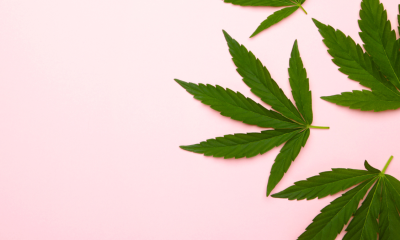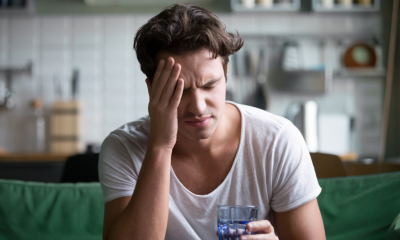SCIENCE
CBD and Mental Health: What does the research say?
This Mental Health Awareness Week, we are examining how to mind your mental health with CBD.
We are living in very difficult times. Closed off from friends and family and plagued by financial and work concerns, the coronavirus has really taken its toll on the nation’s mental health.
But it seems that many people are finding relief from the chaos in the form of CBD.
An analysis by CBD marketplace Alphagreen found that UK interest in CBD has doubled since the beginning of lockdown. The site reported that 8.4 million people had bought, or intended to buy, CBD.
While the majority of consumers have turned to CBD to treat pain, 21% were using it to tackle insomnia and 19% to ease anxiety.
So what does the research say about CBD and mental health?

A 2019 case study published in The Permanente Journal explored whether CBD improved anxiety and/or sleep of 103 patients in a clinical setting.
72 patients completed the study, 47 of which initially reported anxiety and 25 reported poor sleep as their primary condition.
Anxiety scores decreased within the first month for 57 patients and remained low for the duration.
Meanwhile, 48 of the poor sleep group (66.7%) reported an improvement in sleep within the first month, although this fluctuated over the course of the study.
The researchers concluded:
“CBD displays promise as a tool for reducing anxiety in clinical populations, but given the open-label and nonrandomized nature of this large case series, all results must be interpreted very cautiously.”

A 2015 study published in the journal Neurotherapeutics investigated whether CBD could be used to treat various anxiety disorders.
The team assessed preclinical, clinical, human experimental and epidemiological studies to build a picture of its effectiveness in different settings.
The researchers found substantial preclinical evidence supporting CBD for anxiety disorders.
However, they called for more clinical studies to be conducted.
The team wrote:
“Human experimental findings support preclinical findings, and also suggest a lack of anxiogenic effects, minimal sedative effects, and an excellent safety profile.
“Overall, this review emphasizes the potential value and need for further study of CBD in the treatment of anxiety disorders.”
So as you can see, research into CBD for sleep and anxiety is very much in its infancy. However, when used responsibly, it shows a lot of potential.
Header Image: Fotorech (Pixabay)










